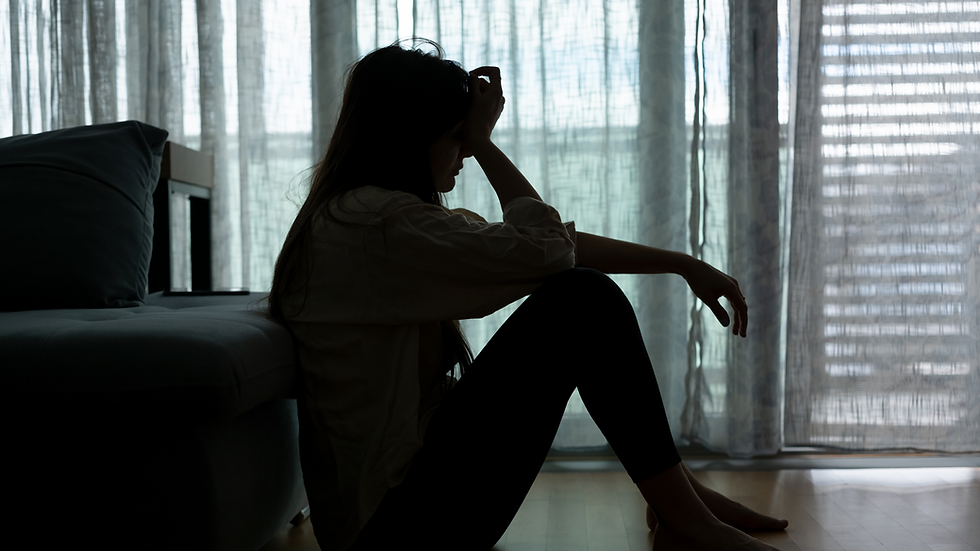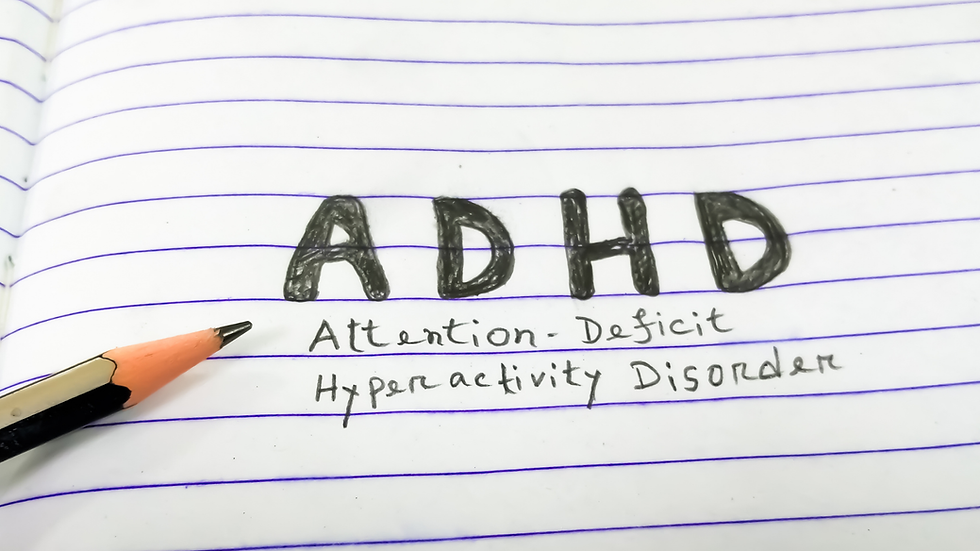Understanding Depression
- Jolene Psychology and Hypnosis Centre

- Aug 21, 2025
- 4 min read
Updated: Oct 15, 2025

Have you been feeling exhausted, unmotivated, and finding it difficult to enjoy things you once loved? Are you experiencing a persistent sadness that seems to linger for weeks on end? It's easy to dismiss these feelings as a sign of being lazy, unmotivated, or simply "not disciplined," but they could be signs of depression.
This isn't a sign of weakness or a lack of character. It’s easy to dismiss someone’s pain as “overreacting,” but for those living it, depression is anything but small. It grows from heavy burdens — financial struggles, family conflict, abuse, loneliness, or feeling trapped without support. We often hear about it in the news: heartbreaking stories of individuals who have lost their lives to suicide, a devastating consequence of untreated depression.
While these tragic cases make headlines, they represent a fraction of the silent struggles happening all around us. Countless others battle depression in silence every day—in our classrooms, our workplaces, and even within our own families and circles of friends. Their pain is a hidden burden, often masked by a forced smile or a seemingly normal facade. It's a testament to how profoundly depression can isolate a person, even when they are surrounded by others.
The Science Behind the Sadness
It's important to understand that depression is not simply a matter of "not trying hard enough" or "choosing to be negative." It's a condition that can significantly impact us both biologically and psychologically. One of the key biological factors involves the balance of neurotransmitters in the brain. Serotonin, a key neurotransmitter, helps regulate mood, sleep, appetite, and cognition; low levels are often linked to depression. Other neurotransmitters like dopamine (linked to motivation and pleasure) and norepinephrine (related to energy and focus) also play a role. When these chemicals are out of balance—due to stress, trauma, or other factors—they can lead to the symptoms we recognize as depression.

When serotonin levels are imbalanced or not functioning effectively, it can contribute to the development of depression symptoms. This biological component, combined with psychological factors such as stress, trauma, and individual coping mechanisms, can lead to a state of significant mental exhaustion. You might experience a loss of appetite, changes in sleep patterns (difficulty sleeping or sleeping too much), a persistent feeling of sadness or emptiness, and a diminished interest or pleasure in almost all activities. Changes in sleep, appetite, energy, or enjoyment in life aren't just "bad days" if they have been going on for long enough—they may be signs of a real and treatable health condition.
Recognizing the Symptoms: A Simple Self-Test
If you're concerned about your mental well-being, it can be helpful to take a moment to reflect on your feelings and experiences. One of the most common screening tools used by healthcare professionals is the Patient Health Questionnaire-9 (PHQ-9). This simple, nine-question self-assessment can help you identify if your symptoms are consistent with depression. It asks about things like your interest in activities, your sleep patterns, your energy levels, and your feelings of self-worth over the past two weeks. While this is not a diagnostic tool, it can be a good starting point for a conversation with a professional.
Self-Help Strategies: Small Steps That Can Make a Difference

While professional support is crucial, there are also small steps you can take to care for your mental health on a daily basis. These practices are not “cures,” but they can help build emotional resilience and reduce the intensity of symptoms over time.
Start Small – When everything feels overwhelming, start with tiny, manageable goals. Even making your bed, brushing your teeth, or stepping outside for five minutes is a win. Momentum builds from small actions.
Track Your Mood – Keeping a journal of your feelings and thoughts can help you notice patterns, triggers, and improvements. It also helps you express emotions that are hard to say out loud.
Move Your Body – Regular physical activity, even a 10-minute walk, can boost your mood by increasing endorphins and helping regulate sleep and appetite.
Stay Connected – Isolating may feel safer when you're down, but reaching out to someone you trust, even just to talk about ordinary things, can make a difference. You don’t have to talk about your feelings right away; connection itself is healing.
Challenge Negative Thoughts – Depression often comes with harsh self-talk. Try to identify and gently question these thoughts. “Would I say this to a friend?” is a useful question to ask yourself.
Limit Screen Time – Social media can distort reality and amplify feelings of inadequacy. Try to reduce your exposure or curate your feed to include uplifting, real, and supportive content.
Practice Mindfulness or Relaxation – Deep breathing, grounding techniques, or guided meditations can help calm your nervous system and reduce anxiety symptoms. You can find them on youtube and other social media platforms.
Stick to a Routine – Even if it’s simple, a consistent daily rhythm (waking, eating, sleeping at regular times) supports mental and physical health.
When to Seek Help
If you've been experiencing these symptoms, it's essential to consult with a professional. Remember, you don't have to face this alone. A mental health professional can provide a proper diagnosis and recommend a treatment plan which may include psychotherapy and neurofeedback therapy*link it, or a combination of both.
You are not alone in this. There are people who want to help. Please, reach out to us. Your well-being is important, and taking the first step to seek help is a sign of strength, not weakness.
Asking for help is the first step toward healing.
Reach out to us at Jolene Psychology and Hypnosis Centre.
We’re here to support you with compassion, understanding, and proven approaches to help you heal and thrive in your life.
📞 088-273838 | 017-8163966
📍 Lot 3, First Floor, Lorong Tupai 1, Teck Guan Villa (Beside Merdeka Supermarket, Opposite Lido Plaza)



Comments